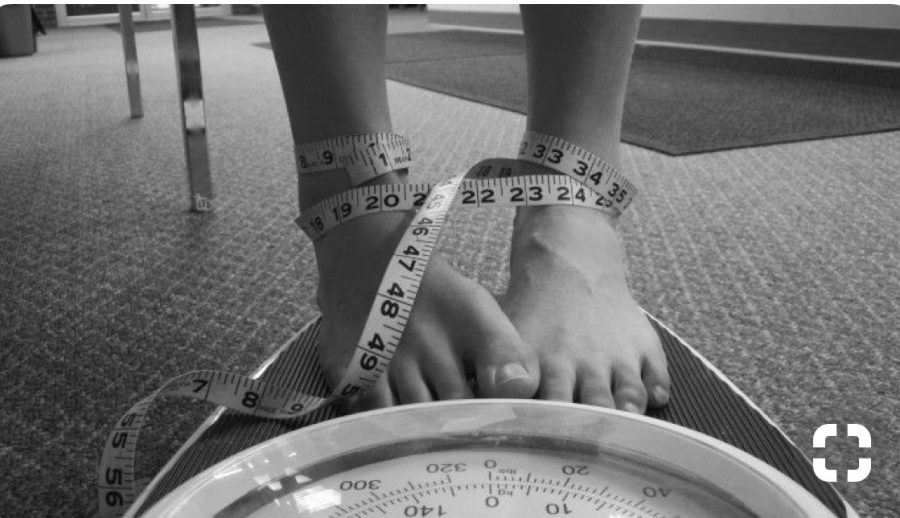The Dangers of Eating Disorders
When people think of mental illness, they immediately go to depression and anxiety, oftentimes overlooking a mental illness that directly kills one person every hour—eating disorders.
At least 30 million people suffer from eating disorders in the U.S. alone, and studies suggest that one in twenty people will be affected by an eating disorder at some point in their life. Because eating disorders can be easy to hide and is not a topic commonly talked about, they are often forgotten. However, it is important to know the symptoms and be aware if you or a friend may be developing an eating disorder.
There are several different types of eating disorders, all containing different signs and symptoms; however, according to NEDA (National Eating Disorder Association) there are some symptoms that pertain to most eating related disorders, but specifically anorexia. These signs are: dramatic weight loss, dressing in excessive layers, is overly concerned with weight/food/calories/fat grams/dieting, frequent comments about his/her weight, making excuses to avoid situations with food, drawing away from social events, fatigue, and excessive exercise.
Despite all these signs for eating disorders, it is easy to overlook how common the disorder is. In addition, it is even easier to ignore the true dangers that coincide with eating disorders. There are hundreds of physical symptoms that arise from eating disorders, for example: brittle nails, acid reflux, sleep problems, hair loss, cavities, yellow skin, fainting, feeling cold all the time, and dry skin.
Eating disorders are extremely important to be aware of because they can be disastrous and harmful to the body. Body image is huge in our culture since society shoves the “ideal body type” down our throats daily. Because of this, people often develop eating disorders, causing potentially fatal problems in the long run. Self-image and love is important but must be attained through balanced dieting and exercise.
If you or someone you know is struggling with nutrition or eating, do not be afraid to reach out and seek out help. Eating disorders are serious conditions that take the lives of people every day. Make sure to seek out the help you need!

Caitlin is a senior at St. Dominic High School. She is involved in Pro-Life Club, A.D., CRU and is a part of the tennis and track teams. Whenever she is...



Kelsey Cooper • Apr 13, 2018 at 10:27 am
Beautiful, very informative, love you girl